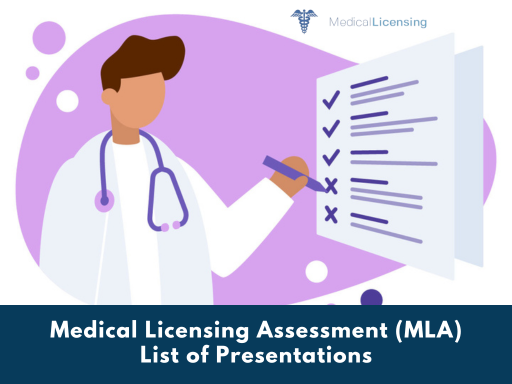The Medical Licensing Assessment (MLA) is a significant milestone for medical graduates, indicating their readiness to embark on a healthcare career.
In the journey towards medical licensure, the significance of presentations within the Medical Licensing Assessment (MLA) cannot be overstated. These presentations serve as a vital component of the assessment process, allowing candidates to demonstrate their clinical knowledge, communication skills, and professionalism in a simulated clinical setting. This article explores the crucial role of presentations in the MLA and offers insights into how candidates can effectively prepare and excel in this aspect of the examination.
1. Assessing Clinical Competence
Presentations in the MLA are designed to evaluate candidates' clinical competence across various medical specialties and scenarios. Candidates are tasked with presenting patient cases, interpreting clinical data, formulating differential diagnoses, and outlining management plans—all within a limited time frame. Through these presentations, assessors assess candidates' ability to apply medical knowledge, think critically, and make evidence-based decisions in clinical practice.
2. Evaluating Communication Skills
Effective communication is a cornerstone of medical practice, and presentations in the MLA provide candidates with an opportunity to showcase their communication skills. Candidates must articulate their thoughts clearly, convey complex medical information in a concise and understandable manner, and engage effectively with assessors and colleagues. Assessors evaluate candidates' communication skills, including their ability to listen attentively, respond empathetically, and adapt communication styles to different audiences.
3. Demonstrating Professionalism and Ethical Conduct
Presentations in the MLA also serve as a platform for candidates to demonstrate professionalism and ethical conduct in clinical practice. Candidates are expected to adhere to professional standards, demonstrate respect for patients' autonomy and confidentiality, and navigate ethical dilemmas with integrity and compassion. Assessors evaluate candidates' professionalism, including their ability to maintain professional boundaries, uphold ethical principles, and prioritize patient welfare.
4. Simulating Realistic Clinical Scenarios
The presentations in the MLA are designed to simulate realistic clinical scenarios that candidates may encounter in their future medical practice. Candidates must approach each presentation as they would a real-life patient encounter, drawing on their clinical knowledge, problem-solving skills, and clinical reasoning abilities to provide optimal patient care. By immersing candidates in these simulated scenarios, the MLA assesses their readiness to practice medicine independently and autonomously.
5. Strategies for Effective Preparation
To excel in presentations within the MLA, candidates should adopt a systematic approach to preparation. This may include reviewing clinical guidelines and protocols, practicing case presentations with peers or mentors, honing communication skills through role-play exercises, and familiarizing oneself with common ethical dilemmas in medical practice. Additionally, candidates should cultivate self-awareness, solicit feedback from peers and mentors, and reflect on their performance to identify areas for improvement.




